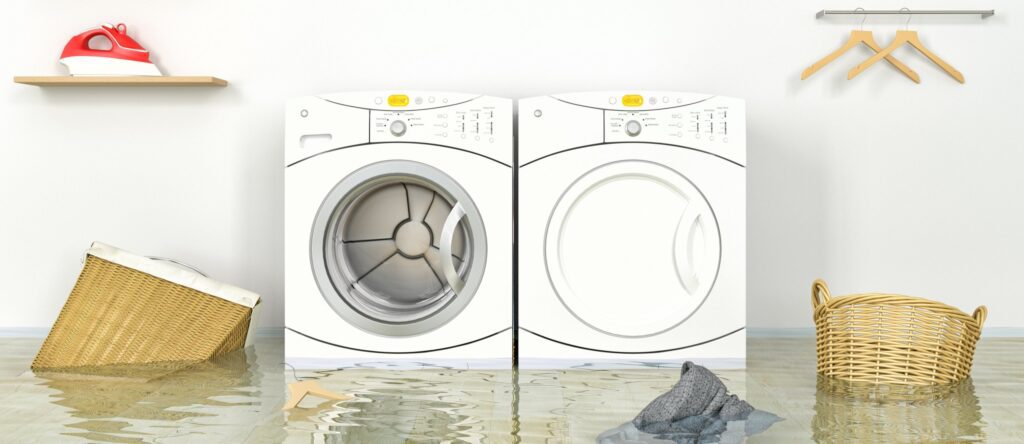Tips to prevent water damage and basement flooding

3 minute read
Basement flooding causes millions of dollars in insurance claims every year in Canada, with an estimated 30,000 to 40,000 incidents annually. It doesn’t just result in costly repairs; it can also cause permanent property damage and significantly lower your home or business’s property value.
What causes basement flooding?
Generally, there are two main causes of basement flooding:
Drainage failure: When storm water or ground water seeps into a property.
Sewer backup: When sewage overflows into the basement due to system blockages or overloading.
Common causes of drainage failure
Poor floor or wall sealing: Improper sealing during the construction of your property can allow water to seep into your basement in the event of severe rainfall or snowfall.
Cracks in your floor or walls: In older properties, a crack in the floor, wall or window of the basement is not uncommon and can allow water to easily make its way inside.
Weeping tile failure: Most properties have a weeping tile system integrated into the foundation to help with underground water drainage. When this system fails, the risk of flooding increases significantly.
Sump pump failure: A sump pump is a feature found in many basements that’s used to collect and remove rain or ground water that has accumulated in the basement of a property. Without a functioning sump pump, rain and ground water will continue to build up and can result in basement flooding.
Blocked or broken eavestroughs: If your eavestroughs are not draining properly, most of the water that runs off your roof could permeate down and flood your basement.
Common causes of sewer backup
Clogs: A clog is the most common cause of sewer backups within a property. If it appears to only be affecting one toilet or sink, it’s likely that the clog is inside that specific drain. If you’re noticing a backup with every flush or every time you use a sink, the clog is likely in your main sewer line.
Tree roots: Sometimes tree roots grow right into the pipes creating holes and blockages, and other times the root may wrap itself around the pipe and end up crushing it.
Broken or collapsed pipes: These are common in older homes and can be a major cause of sewer backups. Plastic pipes are now industry standard, but older homes with cast iron piping run the risk of damage, especially during winter.
Preventing water damage caused by basement flooding
Some causes of basement flooding are out of our control, but there are things property owners can do to help protect themselves against this risk.
1. Ask an expert
Bring a licensed plumber into your property to complete an investigation. Every home is different, so following standards and tips from others may not work in your case. Someone who’s well-versed in this area will provide you with insight on the specific nature of your plumbing to ensure you’re taking the right steps to avoid any potential damages. Ensure you choose a plumber who’s been certified.
2. Seal foundation cracks
After speaking to an expert, you may discover vulnerabilities in your property’s foundation, walls or floor. Sealing all visible cracks will help prevent water from seeping in, reducing the likelihood of basement flooding.
3. Keep storm sewers clear
When storm sewer entry points are blocked or clogged, it prevents storm water from being able to properly drain, which increases the chances of city flooding. Make sure the sewers surrounding your property are clear of leaves, garbage, ice and other debris that could prevent water from draining.
4. Maintain your eavestroughs and downspouts
Clearing eavestroughs and downspouts regularly helps prevent water buildup and reduces the risk of basement flooding. Make sure you’re keeping an eye on the buildup, especially in the spring and fall, and clean/ clear them out to avoid any blockages.
5. Be mindful of what goes down the drain
When preparing food or washing dishes, try to avoid allowing any food remnants, fats, oils, or grease to go down the drain. These often build up inside your pipes and result in blockages.
6. Reduce water usage during heavy rainfall
If there’s a big rain or snowstorm forecasted on a particular day, try to avoid excessive use of water. Wait to do your laundry the next day and keep showers as short as possible. The more stress you put on your municipal sewage system, the more likely a flood becomes.
Protect yourself and your property with insurance
Basement flooding can lead to costly repairs and downtime. Make sure you have the right insurance coverage to mitigate these costs if you ever experience a flood. Visit our commercial property insurance page to learn more about how the appropriate coverage can help you recover after a loss.
This blog is provided for information only and is not a substitute for professional advice. We make no representations or warranties regarding the accuracy or completeness of the information and will not be responsible for any loss arising out of reliance on the information.






